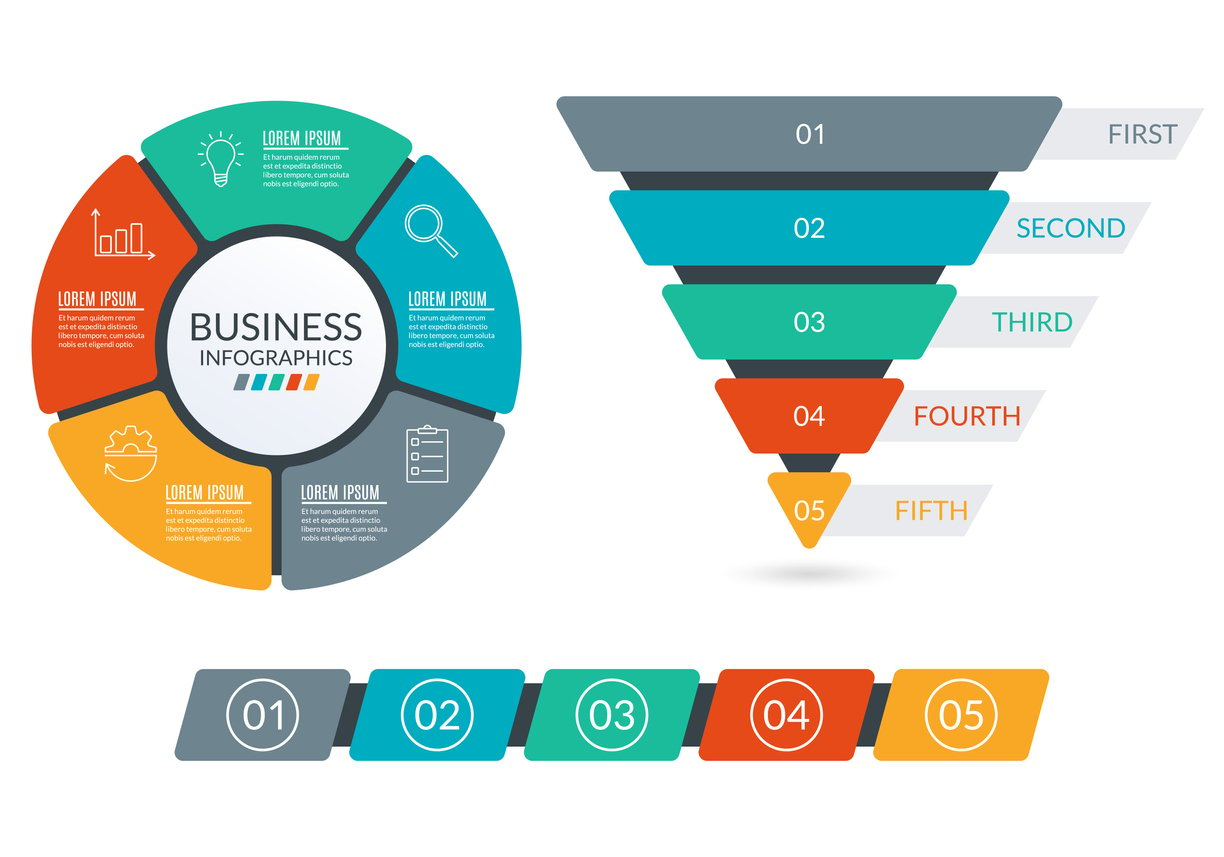
Solution Selling: A Comprehensive Guide
 Updated on
Updated on
 By Carlos Correa
By Carlos Correa
Carlos Correa
Carlos has been involved in the sales space for well over ten years. He began in the insurance space as an individual sales agent, managing teams as s...
learn more
Carlos Correa
Carlos has been involved in the sales space for well over ten years. He began in the insurance space as an individual sales agent, managing teams as s...
Table of Contents
Table of Contents
Let's assume for a second that you are a customer in need of a product or service, but you need to figure out what to purchase. Most importantly, you want a solution to your problem!
This is where solution selling comes in. Right in the nick of time, solution selling can help you make an informed decision. It's a method of selling that uses the customer's needs and requirements as the basis for creating a customized solution.
But there's more to solution-based selling than just understanding customer needs.
In this comprehensive guide, we'll dive into the world of solution selling and answer all your questions:
- What is solution selling?
- The importance of solution selling
- When should solution selling methodologies be used?
- What are the benefits and disadvantages?
- How does it compare to product selling and value-based selling?
- The solution selling process
- What techniques can I use to get started?
What do you say? Shall we dive right in and take a closer look at solution selling?
Let's go!
Key Takeaways
- Solution selling prioritizes diagnosing customer pain points over pitching product features, fostering deeper trust and long-term relationships compared to traditional sales methods.
- Unlike transactional product selling, this methodology requires a consultative approach that is ideal for complex B2B sales cycles where customization is key.
- The solution selling process relies heavily on deep discovery and active listening to map specific business problems to tailored outcomes, rather than offering a generic fix.
- While it requires skilled reps and longer ramp times, selling solutions effectively differentiates your brand in crowded markets and supports higher close rates.
What Is Solution Selling?
Solution selling is a sales approach that focuses on understanding a customer's business problems and offering tailored solutions to address those problems.
Instead of simply trying to sell a product or service, a solution seller takes the time to understand the customer's needs and pain points and then presents a customized solution that addresses those specific needs.
One key aspect of solution selling is that it often involves consultative selling techniques. In this situation, the salesperson takes on a consultant role, guiding the customer to recognize their particular needs and difficulties. Afterward, they collaborate to construct an answer to those requirements.
An example of solution selling would be a company that sells enterprise software. Instead of just trying to sell the software to a customer, a solution seller would take the time to understand the customer's business processes and pain points and then demonstrate how they can customize the software to meet the customer's specific needs.
Customers who feel that their needs have been fully understood and addressed are more likely to be satisfied with the solution and are more likely to become repeat customers.
Why Is Solution Based Selling Important?

We can create an endless list of reasons why solution-based selling is essential. But we'll try to keep this short and sweet!
1. Builds Trust and Credibility With Customers
Solution-based selling is a process-oriented technique emphasizing fact-based conversations, customization to fit customer needs, and a partnership between the customer and seller.
This approach allows for better communication between both parties, gaining trust and credibility in customers' eyes. It also implies that the seller understands their business needs, leading to an increase in mutual respect.
2. Helps Identify and Address Customer Pain Points
By understanding a customer's needs at a deeper level, solution-based selling can assist them in finding ways to address problems they may not have been aware of before. Not only does this method of sales help generate income, but it helps build strong relationships with customers that last a lifetime.
Based on research, 81% of buyers prefer companies that focus on finding personalized solutions rather than just trying to make a sale. Let's face it, who doesn't want to feel like their needs are being heard?
3. Focuses on the Customer's Specific Needs and Goals
When approaching potential customers with solution-based selling strategies, sellers need to consider each customer's individual goals and objectives that they must meet within their budget parameters.
Set yourself apart from the competition by engaging customers in conversations tailored to their unique needs. This can mean better customer satisfaction and help you save time during your sales cycles since irrelevant discussions won't be part of your process.
4. Helps Differentiate A Company From Competitors

As competition for buyers intensifies in an ever-expanding market, it can be challenging to stand out from the crowd and attract attention.
But solution-based selling provides an effective way of standing out from competitors who are just trying to sell products or services without tailoring them specifically for each customer's requirements.
Solution selling leaves buyers feeling valued because they know they are receiving quality service from the company they choose to do business with rather than just "the only option" available at any given moment.
5. Leads To Long-Term Repeat Business
When you address each customer's unique needs and work with them on finding a solution that works for them, it can lead to long-term results.
This could include repeat orders (if applicable) and referrals driven by positive word-of-mouth experiences from satisfied customers about working with your company compared to competitors in the field. It can take time to foster this type of customer loyalty, but it is worth the effort in the end!
When Are Solution Selling Methodologies Used?

From customer service to sales, solution selling methodologies can be a valuable asset. However, it is essential to understand precisely what these tactics involve.
But what are solution selling methodologies?
Solution selling methodologies are sales processes that focus on identifying the customer's needs, proposing a solution, and providing information about your products or services that could meet those needs.
You can use solution selling methodologies in various scenarios, including:
1. Selling Complex Products or Services, Such as Enterprise Software and IT Systems
This particular sales approach requires a deep understanding of how the customer operates and their needs so that the seller can present a tailored solution that meets those requirements.
It also calls on the seller to be able to break down problems into smaller pieces that are easier to solve. A good example of this would be an organization looking for an ERP system. As you may know, finding the right one and setting it up can be complex and time-consuming.
But by offering a solution approach, sellers can help lighten the load for customers and take care of all the details for them.
2. Selling Consultative Offerings
Consultative sales require a high level of expertise from the seller to be effective because they must comprehend the customer's problem and create a unique solution on their behalf.
As such, it is important for companies that offer these types of services to employ people with knowledge, experience, and advanced communication skills to ensure they provide quality advice that best fits customer needs.
Sellers may also need data visualization tools to demonstrate their findings understandably and effectively. A good example is improvising a CRM solution that offers a comprehensive customer information database and a dashboard tailored to the client's needs. This can help businesses better understand their customers and provide them with more targeted solutions.
3. Working With Large High-Value Sales

When working with large-value sales (often referred to as "big-ticket items"), there is often a much greater risk for both parties due to the significant monetary stakes at play.
As a result, customers will want assurances from vendors that they're making a wise investment. Solution sellers can employ solution selling methodologies like ROI calculations and value measurements to prove that their proposed solution truly offers greater benefits than competitors' offerings.
4. Selling a Portfolio of Related Products or Services
Solution selling enables salespeople to identify where different products could fit into customers' businesses to optimize overall efficiency and effectiveness. Leveraging existing products can also help create synergies between different offerings, maximizing results for both parties involved in transactions.
For example, if you were trying to sell cloud computing solutions alongside managed IT services, you could leverage existing investments and create cost savings through bundled pricing options.
5 Developing Customer Relationships To Increase Customer Loyalty And Referrals
By building strong relationships based on trust whilst demonstrating professional expertise, salespeople can increase customer loyalty so that customers keep coming back over time.
Therefore, it is important to invest time and resources in solution selling techniques to create long-term customer relationships, increase loyalty and eventually get referrals that will help grow your business!
Pros and Cons of Solution Selling Methodology
Every sales strategy has its strengths and weaknesses. While solution selling is a powerhouse for complex B2B environments, it isn't a one-size-fits-all approach. Before fully adopting this framework, it is crucial to weigh the benefits against the challenges to see if it aligns with your team's capabilities and your market's needs.
|
Pros |
Cons |
|
Builds deep, long-term customer loyalty. |
Requires significant time and training to master. |
|
Increases deal size by uncovering hidden needs. |
Can prolong the sales cycle initially during discovery. |
|
Moves the conversation away from price wars. |
Less effective for simple, low-cost transactional sales. |
|
Establishes the salesperson as a trusted expert. |
Risk of "over-selling" if the client's problem is simple. |
Pros
The primary reason organizations shift from transactional models to solution selling methodologies is the significant impact on long-term revenue and customer retention. Here is why this approach works so well:
- Stronger Relationships and Trust: By actively listening and diagnosing problems before offering a cure, you demonstrate empathy. This shifts the dynamic from a vendor-buyer relationship to a partnership.
- Higher Close Rates for Complex Deals: Because the proposed solution is tailored to resolve an identified pain, the value proposition is much harder for the prospect to ignore, leading to higher conversion rates on large-ticket items.
- Enables Consultative Value Discussions: Instead of listing features, you are discussing business outcomes, including ROI, efficiency, and risk reduction. This elevates the conversation to the C-suite level, where decisions are made based on value rather than just technical specs.
- Differentiates Against Commodity Competitors: When you engage in a deep diagnostic process, you often uncover needs the client didn't know they had. If you are the one who diagnosed the problem, you are uniquely positioned to solve it, whereas competitors focused on product selling will seem disconnected and generic by comparison.
Cons
While effective, the solution selling definition of success requires a high level of skill. It is not a "plug-and-play" tactic and comes with specific hurdles:
- Requires Strong Discovery Skills: Reps must master advanced solution selling techniques, such as active listening and open-ended questioning, to uncover the root cause of a prospect's issue. Without these soft skills, the "solution" offered will feel like a guess.
- Longer Ramp Time for Reps: Adopting the new solution selling mindset often requires extensive training and coaching. Organizations must be prepared for a longer ramp-up period before reps are fully productive and comfortable navigating these complex conversations.
- Difficult if Buyer Needs are Already Well-Defined: If a prospect sends out a Request for Proposal (RFP) with strict parameters, attempting to restart the diagnosis process can frustrate them. In scenarios where the customer is looking for a commodity and speed is of the essence, a lengthy solution sales approach may backfire, slowing down a deal that should have been a quick win.
Solution Selling vs. Product Selling vs. Value Selling

Understanding the nuance between these selling techniques is vital for choosing the right strategy for your market. While product selling focuses on the "what," and solution selling focuses on the "why," value selling focuses on the "how much" (the economic return).
The table below breaks down the key differences to help you visualize where each approach fits best.
|
Feature |
Solution Selling |
Product Selling |
Value Selling |
|
Primary Focus |
Customer pain points & problems. |
Features, specs, & functions. |
ROI, business impact, & financial outcomes. |
|
Sales Style |
Consultative & diagnostic. |
Transactional & descriptive. |
Analytical & justification-driven. |
|
Best For |
Complex, undefined problems. |
Simple, commodity purchases. |
High-stakes deals requiring C-suite approval. |
|
Key Outcome |
A tailored resolution to a specific issue. |
Quick delivery of a known requirement. |
Proven economic return on investment. |
Solution Selling
Solution selling is fundamentally about diagnosis before prescription. Rather than leading with a pitch, this methodology starts with uncovering the customer's problems and pain points through deep questioning. It assumes the buyer may not fully understand the root cause of their issues, requiring the salesperson to act as a consultant.
Through a consultative discovery process, the rep peels back the layers of the business challenge. Once the core problem is identified, the rep recommends a tailored solution, often a mix of products and services, specifically designing it to resolve that pain. This makes solution based selling the ideal strategy for complex, high-consideration sales cycles where the answer isn't immediately obvious and the risk of making the wrong choice is high.
Product Selling
In contrast, product selling is the traditional "feature dumping" approach. It focuses heavily on product features, capabilities, and technical specifications. Here, the salesperson acts as an encyclopedia of the inventory, highlighting why their widget is faster, smaller, or cheaper than the competition.
This approach works best when the buyer already understands their needs and has clearly defined the solution they want. For example, if a procurement manager is buying office supplies or standard software licenses, they don't need a deep diagnosis; they need specs and price. Consequently, product selling is fast, transactional, and usually low-friction, making it a strong fit for well-defined, commodity-style markets where efficiency beats consultation.
Value Selling
Value selling is the natural evolution of the solution selling process. While solution sales identifies the fix, the value selling methodology centers on quantifying the economic impact of that fix. It answers the C-suite's ultimate question: "What is the return on this investment?"
This method helps buyers justify the purchase internally by modeling ROI, cost savings, and efficiency gains in hard numbers. It moves the conversation from "solving a problem" to "improving the bottom line."
Because value selling focuses on financial justification, it is often used in the later stages of the sales process to reinforce business value and prevent discounting. It pairs naturally with solution selling once the buyer's needs are understood, acting as the financial proof that the proposed solution is worth the cost.
What Is the Solution Selling Process?

The solution selling process is a sales strategy that involves understanding customer needs, creating tailored solutions, and establishing long-term relationships.
The steps of a solution selling process are as follows:
1. Prospecting & Preparing with Intent
Successful selling solution strategies start before the first call. Instead of "spraying and praying," top reps research the prospect's specific industry trends and persona fit.
You must understand the external pressures their company faces to form a hypothesis about their potential pain points. This preparation ensures that when you reach out because you aren't just looking for a budget holder, but identifying a problem owner who needs the specific solution selling methodology you offer.
2. Discovery & Diagnosing the Core Problem
This is the most critical phase. Using solution selling techniques like the SPIN framework (Situation, Problem, Implication, Need-payoff), you move away from yes/no questions to open-ended inquiries. The goal is to diagnose the root cause of the issue, not just the symptom.
By guiding the prospect to articulate the full scope of their challenge, you establish yourself as a consultant. This deep diagnosis creates the necessary urgency that drives solution based selling. To sell a solution effectively, you need to understand your customer's needs and challenges.
3. Designing a Customized Solution
Once the pain is diagnosed, you must bridge the gap between their problem and your product. Do not offer a generic package.
Instead, map the prospect's specific requirements to your capabilities to create a tailored proposal. This stage transforms your product from a commodity into a necessary fix. In solution selling, the "product" is simply the mechanism that delivers the business outcome the client is desperate for.
4. Presenting Value, Not Features
When presenting, avoid the trap of product selling by ignoring technical specs unless asked. Instead, align with a value selling methodology by focusing on the "after" state. How will their business look once the problem is solved?
Highlight efficiency gains, risk reduction, or revenue growth. Your presentation should tell a story where the customer is the hero, and your solution is the tool that enables their victory.
5. Managing Objections Through Insight
In the new solution selling era, objections are often signs of specific anxiety or risk aversion. Rather than memorizing rebuttals, use data and storytelling to reframe their concerns.
If they push back on price, pivot back to the cost of inaction, the financial pain of leaving the problem unsolved. By quantifying the problem's impact, you make the investment in the solution seem small by comparison.
6. Closing the Deal with Proof
To secure the commitment, you must validate your claims. Use social proof, case studies, and tailored demos that mirror the prospect's use case. This evidence provides the "safe harbor" buyers need to sign.
In a solution selling sales process, the close feels natural because you have already proven that the status quo is untenable and your solution is the only logical path forward.
7. Post-Sale Reinforcement
The relationship doesn't end at the signature. Solution selling methodologies prioritize lifetime value. Ensure a smooth handoff to customer success teams to verify that the solution actually solves the diagnosed problem. This follow-through prevents churn and turns a one-time buyer into a recurring revenue source, validating the trust built during the sales cycle.
How to Get Started With Solution Selling Techniques

If you're interested in implementing solution selling into your organization, here are a few tips to help you get started:
1. Research Your Customers
Researching your customers could mean conducting customer surveys, analyzing customer data, or interviewing customers directly.
Doing so helps you better understand the market and recognize potential opportunities for profitable solutions.
2. Take Time To Understand Their Needs
Understanding your customers' needs means not just gathering information but actively listening to customer feedback and listening for any underlying issues that may be difficult for them to articulate clearly.
Pay attention to the explicit and implicit messages customers communicate about their challenges and desired solutions to identify where your product or service may fit best.
3. Develop Solutions To Meet Their Needs
As part of this step in the sales process, consider how each component of the solution adds value for clients – this should be communicated through each stage of the sale cycle to build trust with potential buyers and close deals more effectively.
Additionally, consider how existing products or services can be modified or customized to meet specific requirements while staying within budget constraints or other operational limitations set by the customer or company management team.
4. Use The Right Software
To implement a solution selling technique successfully, it is crucial to utilize software that allows sales teams to quickly and efficiently access real-time data when engaging with prospects.
This helps teams stay organized, identify opportunities efficiently and maximize productivity and profitability from every deal closed, allowing them to act swiftly on new leads as soon as they arise!
By leveraging technology such as CRM systems, sales teams can quickly access all relevant information about a prospective client's account at any given stage, ensuring everyone is up-to-date on each transaction from the start until the end!
5. Educate Your Team
Lastly, ensure that your sales team is educated on the fundamentals of solution selling and equipped with the knowledge to identify customer needs and create tailored solutions. This can be done through training sessions, role-playing exercises, and providing a library of resources for them to refer to.
Having an engaged, knowledgeable team is essential in ensuring that each sale follows a successful solution selling process.
Conclusion
Solution selling is increasingly becoming the go-to approach for sales teams in today's competitive market. It's easy to see why: when done right, solution selling can help teams close more deals and maximize their revenue.
And with the right software solution, you can ensure you have the right tools at your fingertips to drive success. Ringy helps sales teams manage customer data, track leads, and generate automated reports.
So, if you want a solution selling system worth the investment, look no further than Ringy. With a range of features designed to make solution selling easier, it's the perfect tool for sales teams looking to make their processes more efficient and successful.
Schedule a demo today and see how Ringy can help you get the most out of your solution selling approach!

Skyrocket your sales with the CRM that does it all.
Calling? Check. SMS? Check. Automation and AI? Check. Effortlessly keep in touch with your customers and boost your revenue without limits.

Take your sales to new heights with Ringy.
Sales in a slump? Ringy gives you the tools and flexibility you need to capture leads, engage with them, and turn them into customers.
Subscribe to Our Blog
Enter your email to get the latest updates sent straight to your inbox!
Categories
Related Articles




































































































